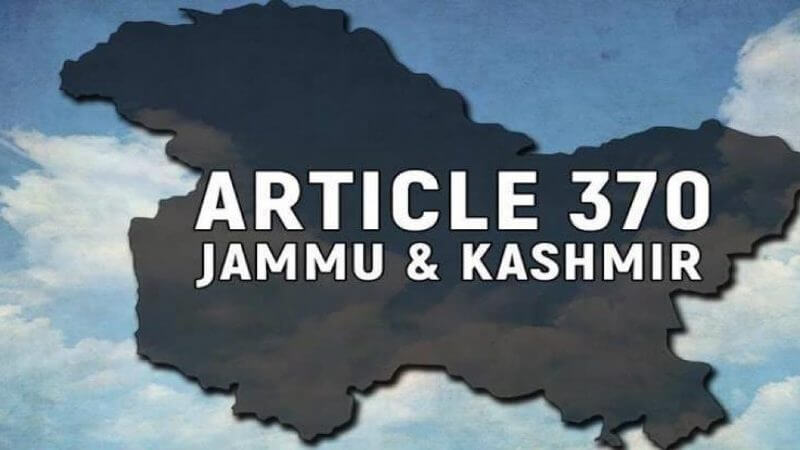
On August 5, 2019, Home Minister Amit Shah moved the proposal to remove all provisions of article 370 in the Rajya Sabha, and also recognize the state of J&K as one of the union territories and Ladakh region separated out as a separate union territory.
Drafted in part XXI of the Indian Constitution, Article 370 gives a special status to the state of Jammu & Kashmir. The constituent assembly of Jammu & Kashmir, post establishment, was entrusted to recommend the articles of the Indian constitution that should be applied to the state or to nullify the article 370 altogether. However, the states constituent assembly vanished itself on January 25, 1947, without recommending either amendment or abrogation of the article 370, making the article a permanent feature of the Indian Constitution.
( Also Read: India Successful In Testing Anti-Satellite Weapons: PM Modi)
It allows the state legislature to define the states permanent residents. The article was inserted via the constitution orders, 1954 and issued by then president Rajendra Prasad under article 370 on PM Nehrus advice. The article defines permanent resident as someone, who has been a resident for 10 years, and lawfully acquired immovable property.
The scrapping of article 370 has divided the state into two union territories- Jammu Kashmir and Ladakh. With the support of several non- NDA parties, the bill pertaining to the division of the border state is likely to be cleared in the Rajya Sabha. Supporting parties are BSP, BJD, AIADMK, TDP, and YSRCP. However, Janta Dal (United) of Nitish Kumar was against the Modi Governments move and staged a walk-out from the House. It was Friday when the GOI suspended the amaranth Yatra and urged tourists to return from the valley at earliest.
It is anticipated that the ending 70 years of the stated policy will affect the trade practices that have been conducted between the J&K and other states of the nation. Trade of fresh and dry fruits, other Kashmiri products can be affected in terms of tax applied, etc. Effects on the real estate sector can be estimated as the scrapping of article 370 (and hence article 35 A) will allow people from outside J&K to buy property in the state and settle there. This will empower people to invest in property that will indirectly boost the tourism, as options for lodging will increase. Changes will occur in the followings:
( Also Read: One Year Later: How Demonetization Impacted The E-Commerce Industry)
Earlier, J&K has its own constitution; with the revocation of article 370, Jammu & Kashmir will adhere to the Indian constitution, much like the rest of the nation.
Major changes in law and order can also be seen as earlier it was under the control of the state government; however, now the government can structure the power-sharing model based on Puducherry or Delhi. In Puducherry, law & order is a state subject, while in Delhi, law and order is under the control of Union Government.
Previously the central government had to seek approval of the state legislature to raft and enforce laws. Now, Central laws will automatically apply to the state.
Article 370 granted special permission to the state to have its own flag along with the national flag. Now, parliament will decide if J&K can continue with its own flag.
Add Comment